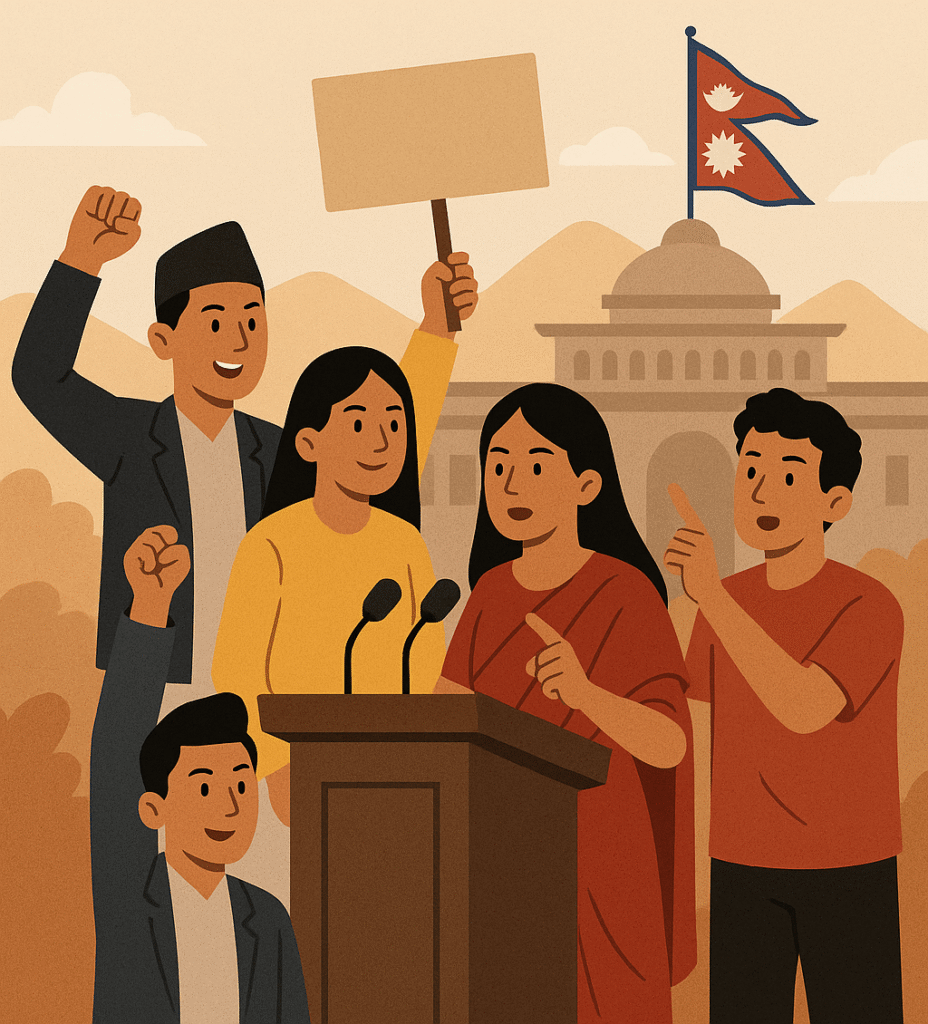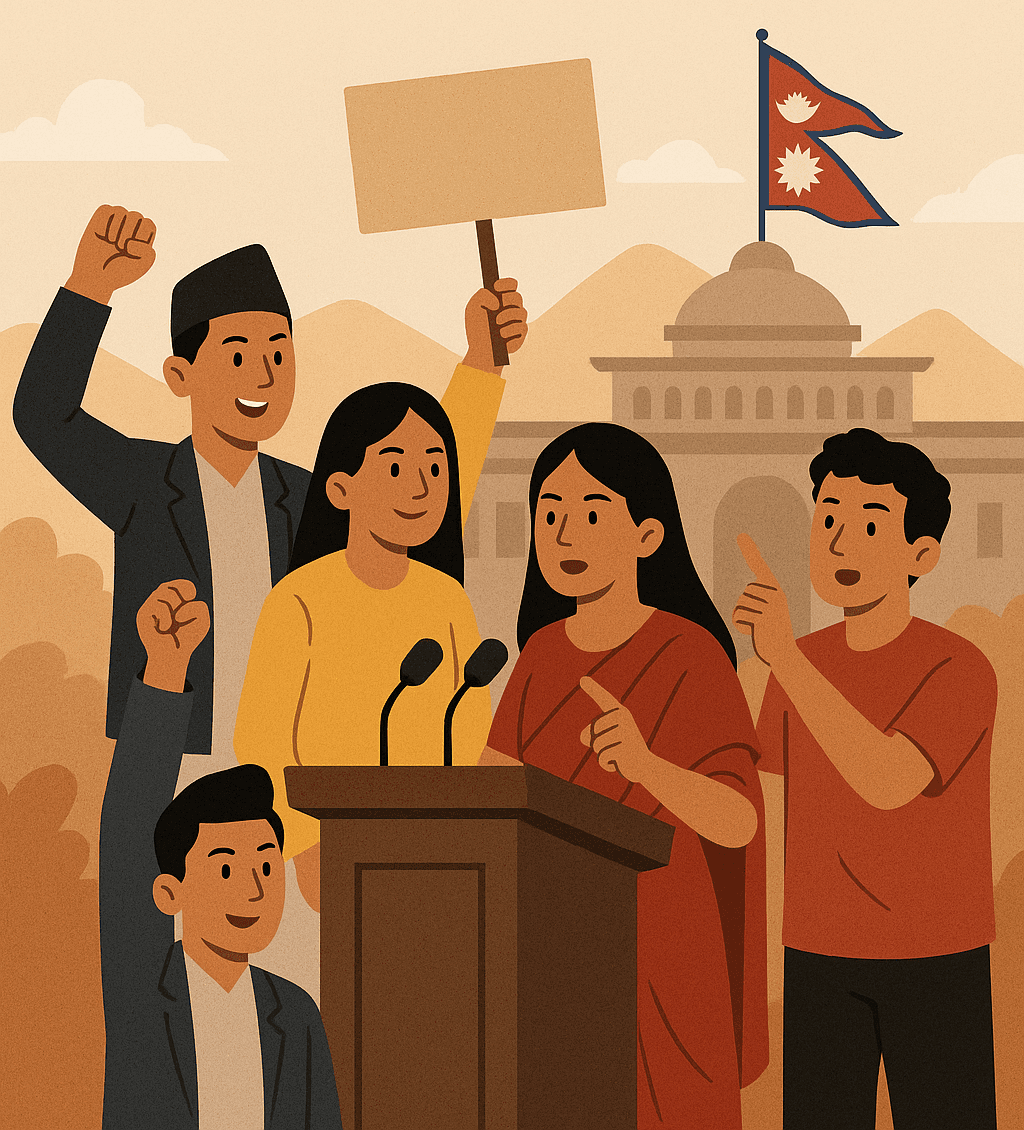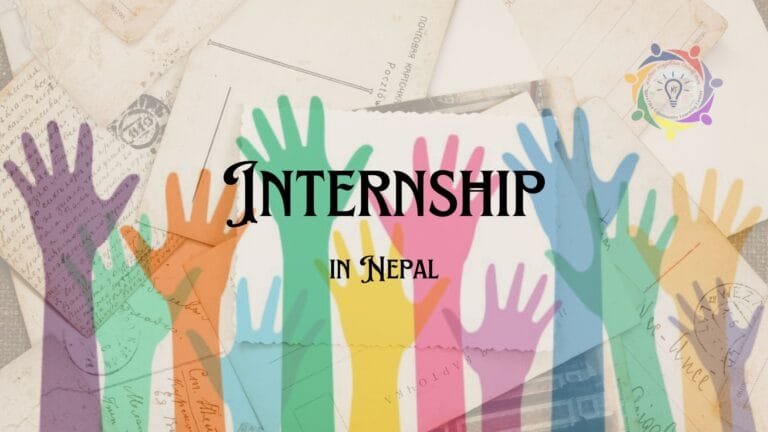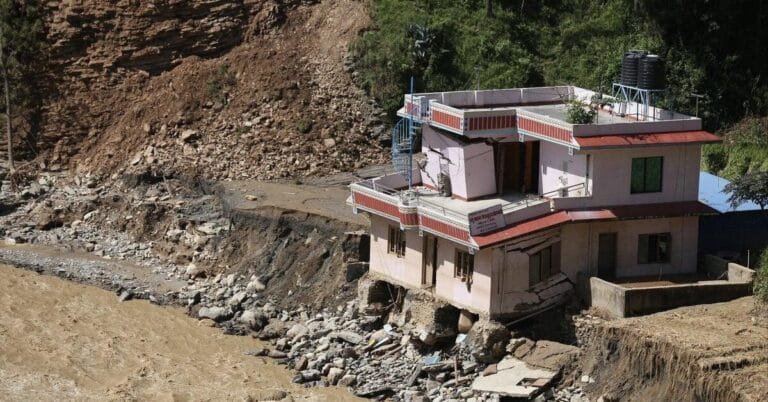Article by Kshitij Sharma ( ESC Supervisor, VIN )
Background
Youth are the most valuable asset of the Nation, playing a vital role as pioneers, agents of political, economic, and cultural transformation. They have courage, creativity, adaptability, and self-confidence, often seen as the driving force for building a better future. Globally, there are approximately 1.2 billion young people aged 15-24 making up to 16% of the world’s population. This number is expected to be nearly 1.3 billion by the end of 2030. In Nepal young people aged 16-24 make up to 20.8% of the total population and 40.68% for the population under the age of 40, indicating Nepal has youthful demographic with the great potential to shape the country’s future.
A report by the Organization for Economic Co-operation and Development (OECD) states that 53% of countries with active youth participation in decision-making have successfully implemented democratic and sustainable policies. According to Nepal’s Constitution and the Youth Vision 2025, individuals between the ages of 16 to 40 are officially recognized as youth in Nepal. However, despite this broad age range, youth representation in Nepal’s federal parliament remains as low as 11.6%, highlighting a significant gap in Nepal’s political inclusion of young people.
Historical involvement of youth in Nepal politics

The political history of Nepal has been shaped largely by the significant role of young generation. During 1940 at the time of anti-rana movement to the 1990s during Jana Andolan (people’s movement) young activist has played a vital role in major political changes. In addition to this their role was equally important in 2006 Loktanrik Andalon (Democracy) which resulted in an end of the monarchy and established a federal democratic republic. Nepal Civil War between 1996-2006 also saw engagement of youth on different fronts, some were involved in Maoist rebellion while other engaged in peace and democracy.
In recent year, Nepali politics have experienced a shift in participation. With online activities and use of social media, youth participation in the political sphere seems to be slowly increasing. This kind of activism was particularly seen during Gorkha Earthquake 2015 where youth were mobilized thorough social media to organize relief efforts and demand political accountability. Outside of politics, youths have taken the leadership in addressing several social issues such as poverty, education, and conservation through the efforts of volunteering and other social works. Although they have been underrepresented and have socio-economic barriers, National youth policies are currently being launched to empower and engage youth in the administration and in decision making process. From fighting for democracy to heading to civil movements, Nepalese youth continue to play an integral role in shaping the future of the country.
Current participation of youth in Nepal politics spheres
Looking toward, youth involvement in Nepal’s political is slowly getting better. Most of the political parties now have established youth wings and have promised to include more young people and provide them with the opportunity to move forward, however most of the real decisions are still made by the older leaders. Many young wings and student unions are active, but they often focus on supporting their parties than solving real problems of the youths. At the same time many young people are getting involved outside of political parties, through volunteer work, protest, and awareness campaigns. Social media has played a significant role in their campaign. These youth come with a vision and care about issues like corruption, climate change, unemployment and human rights.
During 2022 local and federal elections a big change was seen, where many young people ran for political positions. May of this young people ran without a party support (independently). Some of them also won the positions, like Mayor, Ward chairpersons and even MPs. This change shows that more people now trust young leaders who want to bring change, rather than those who are in the same position for several years. However, youth representation is still very low in the higher government. For example, only around 11.6% of members in Nepal’s federal parliament are under 40 years old.
Barriers to Youth Participation in Nepal Politics
In recent years we can slowly witness a change in the mindset of the young generation. Despite growing awareness and enthusiasm among the Nepalese youth for political engagement, several barriers continue to hinder their meaningful participation. One of the key obstacles is age restrictions embedded in the country’s legal and political framework. Individuals must be at least 25 years old to run for the provincial and federal positions and appointments to constitutions often require a minimum age of 45. These rules exclude the large portion of the youth and the motivation to carry their career further in politics.
Unemployment as the major setback
The country’s youth unemployment rate remains a major reason why young people are not actively involved in politics. According to International Labor Organization (ILO) Nepal’s unemployment rate for youth stands at 19.2%, much higher than the National average of 2.7%. This lack of job opportunities, combined with low wages and political instability, pushes many young people to seek a better future abroad. The growing trend has created serious brain drain, where the country loses its skilled and educated youth to more developed countries.
As a result, Nepal’s youth are increasingly disconnected from political process. The absence of young voices weakens democratic participation and limits the changes for new ideas and leadership to emerge. Many young people abroad also lose touch with national issues, making it even harder to engage them in political discussions. If Nepal wants to improve youth involvement in politics, it must address the root causes of migration by creating jobs, increasing wages, and ensuring political stability. A stable future at home would give youth more reason to stay and participate in building the country’s future.
No space for the Youth in decision-making
Another change for the youth in the decision making process is reluctance of the older political leaders to share power with younger generations. Most top political positions in Nepal are still held by the individual which are in their 60s and 70s, among which many of them have been in power for decades. The young people who join political parties are often given minor roles with little to no decision-making power. Without proper support, training and mentorship, many young politicians find it difficult to grow in their careers or have real influence. This discourages others from even trying to enter politics.
While other countries around the world offer useful examples. In place like Lebanon, India and UK, programs are in place to help youth understand law making and public policy through internships and fellowships. These opportunities give young people the experience and confidence they need to get involved in politics. Nepal currently lacks such systems.
Reform Laws to Support Youth Participation in Nepal Politics
To increase youth involvement in politics, Nepal needs to reform its laws that currently set high age limits for running for political roles and holding key positions. Lowering the minimum age requirements for elections and appointments would allow more young people, especially those aged 16 to 24, to participate fully in the political process. Such changes would align legal provisions with Nepal’s own definition of youth (16–40 years) and help create a more inclusive political environment.
In addition to legal reforms, the government should strengthen and clearly implement the National Youth Policy by setting detailed action plans, allocating sufficient budgets, and establishing timelines for youth empowerment initiatives. By providing better support and removing legal barriers, Nepal can tap into the energy and ideas of its young population. This will ensure that youth are not only participants but also leaders shaping the country’s future.
🏡 Visit Us! Stop by NTCLC and see what we’re all about.





